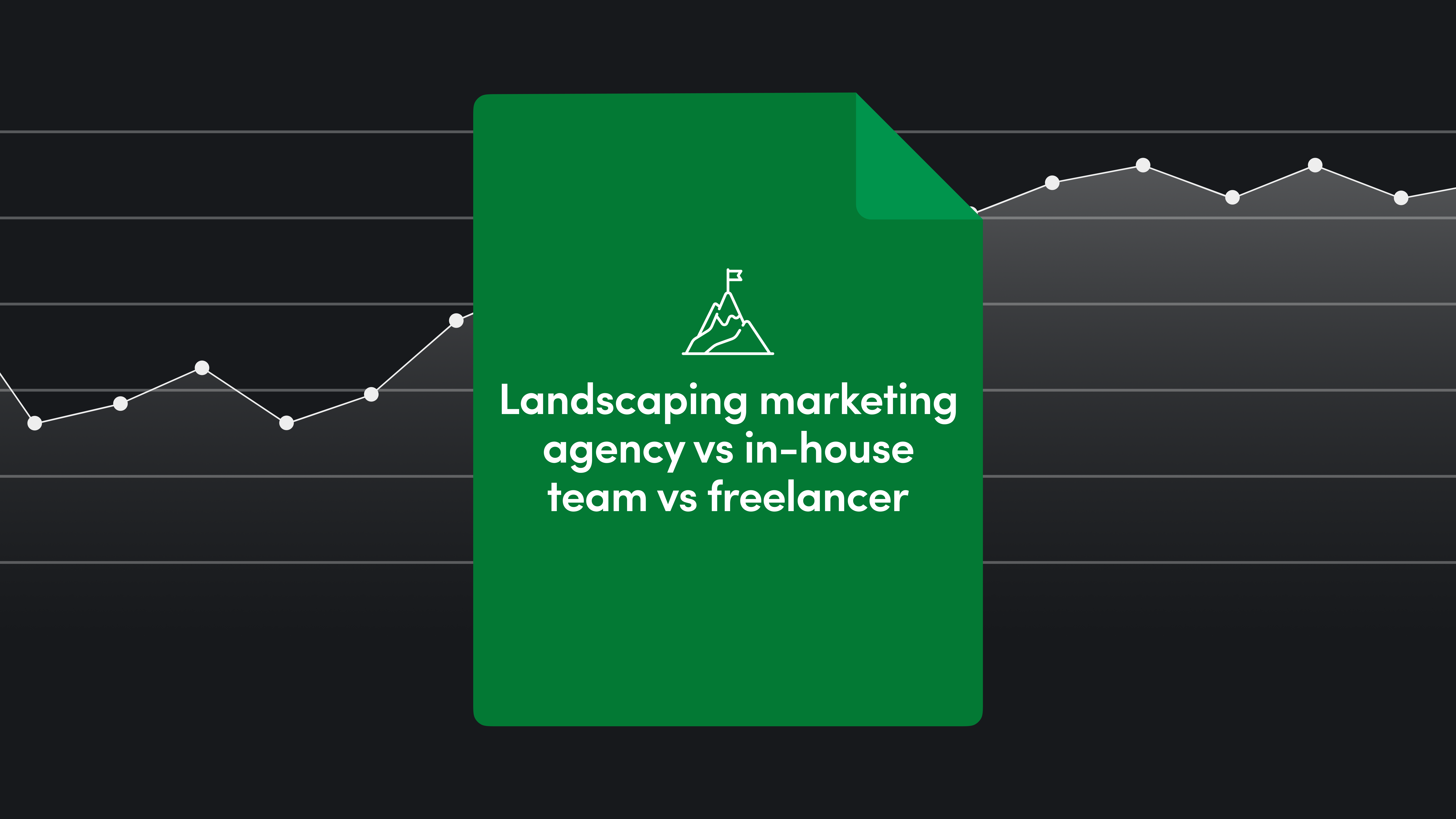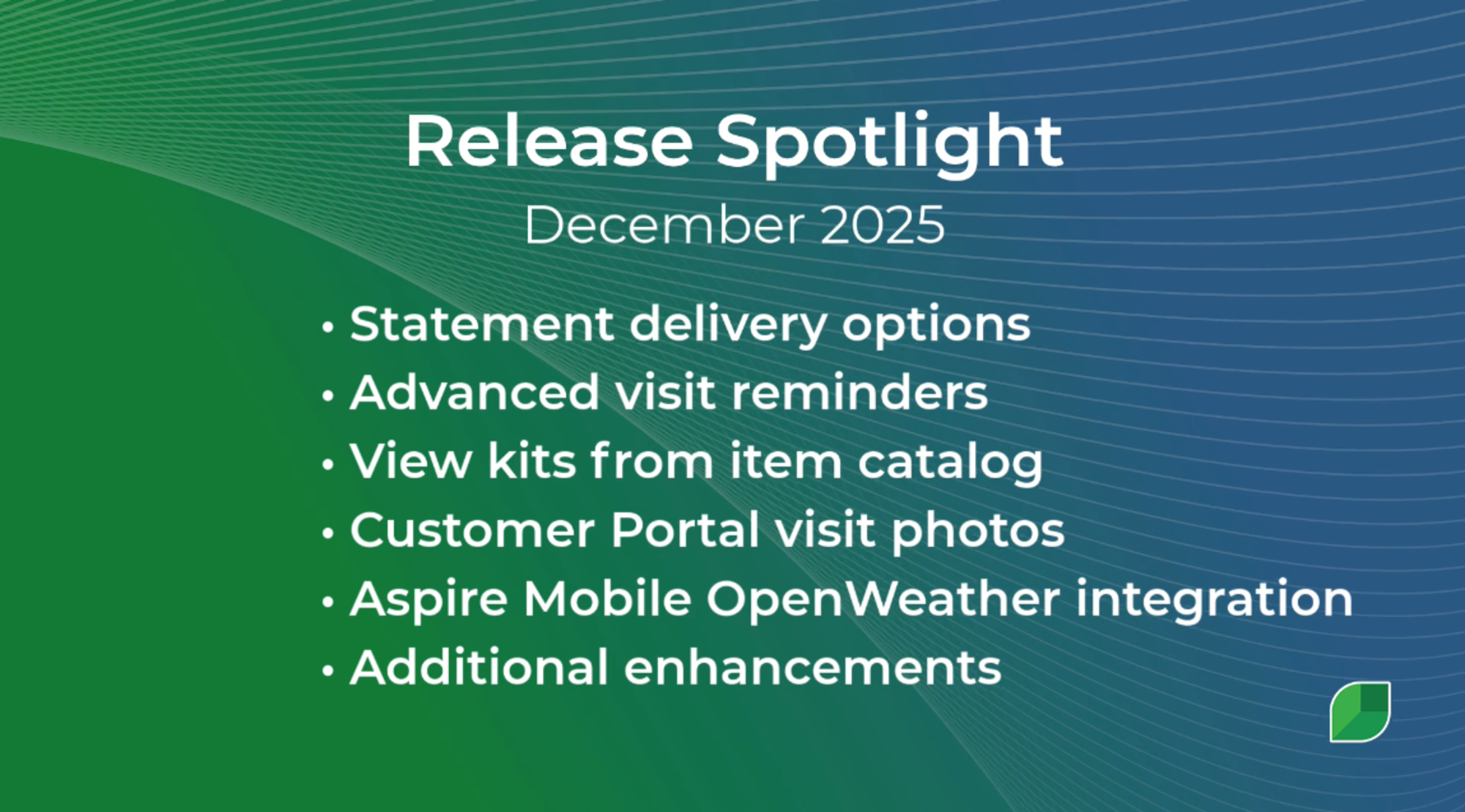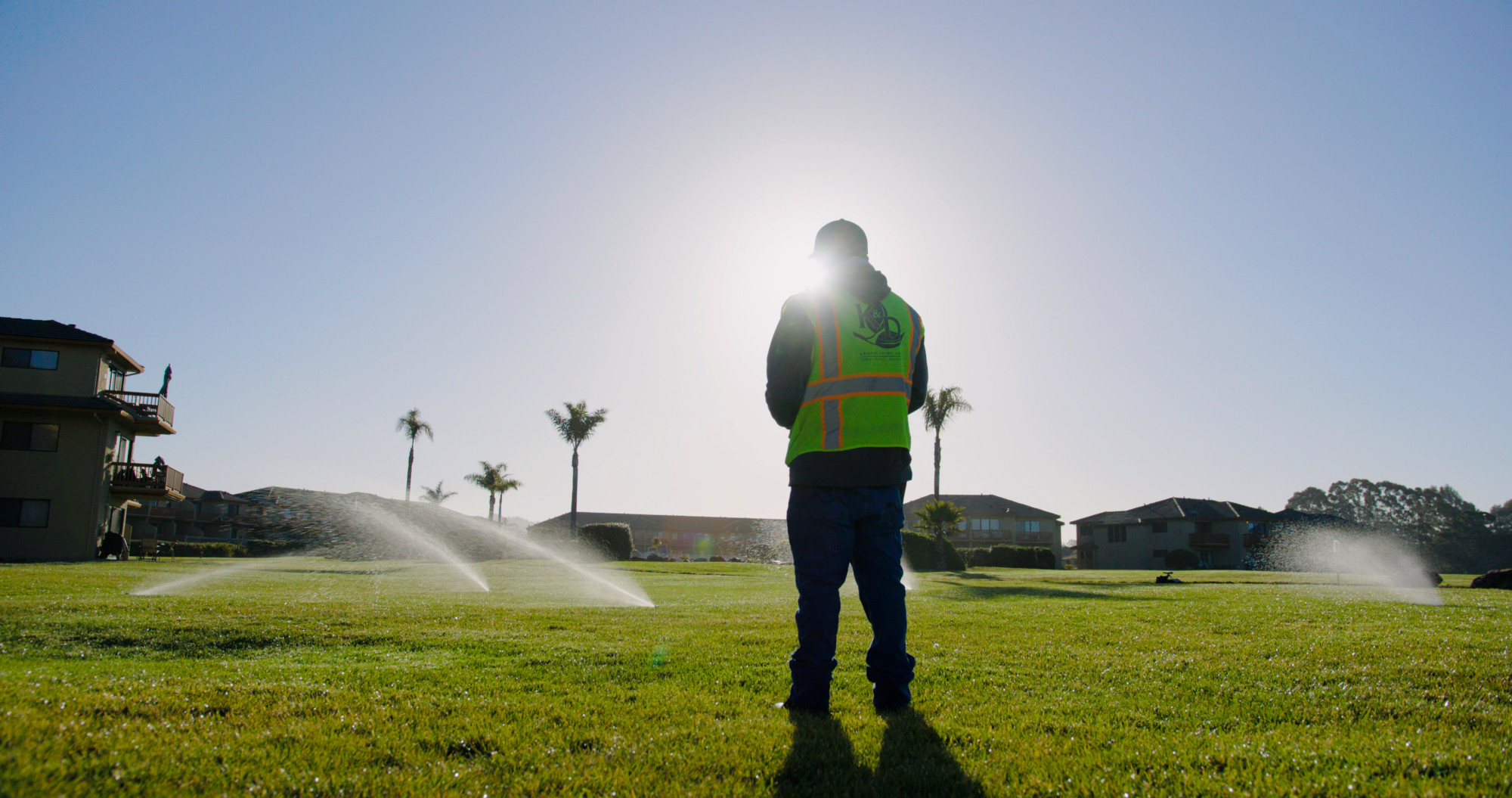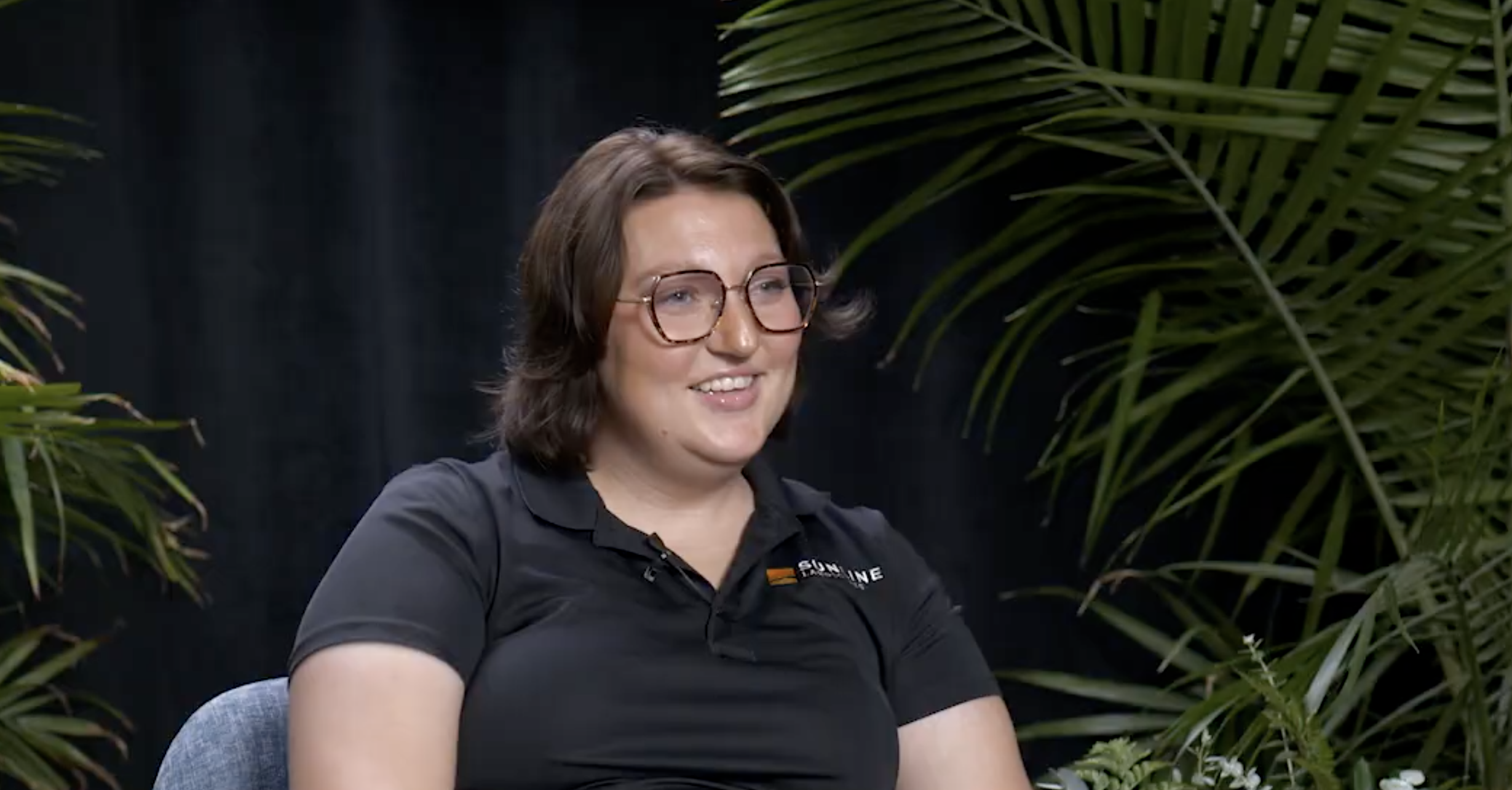Tuesday, Nov. 5
Milosi’s Milliken: On KPIs, it’s about how to eat the elephant
By Mike Persinger
The crowd for Milosi Inc. founder and owner Taylor Milliken’s fireside conversation on KPIs for the landscaping industry drew a big crowd at NALP’s Elevate in Charlotte, N.C. For every business, clearly, the numbers are important.
An Aspire customer for almost three years, Milosi pulls data from Aspire for business functions from marketing to sales and operations, sometimes combining it with data from outside Aspire for deeper understanding.
His suggestion? Three to five key performance indicators at the business-wide level, then three to five for each department.
Analysis of that data to determine which of those indicators are actually driving the business forward is essential.

Above: Taylor Milliken, founder and owner of Milosi, leading the session "Campfire Conversation: KPIs and their Value" at Elevate.
“We've been tracking KPIs for a really long time,” Milliken said. “But as our company is evolving, we are identifying the information that we need to pull, and then being able to work inside of Aspire to go to pull it.”
And while the data comes from Aspire and Milliken consults the dashboards there, everything is still transferred to spreadsheets.
What can a company that wants to be better and tracking and reacting to KPIs do? Milliken suggests starting small and building from there.
“If I were to go back, if I were starting a company right now and I knew nothing about KPIs, I'd go find somebody that's been doing it for a while and ask them to share it with me, and just start tracking them,” Milliken said. “Start small and start simple, tracking find three to five things.”
And he suggests a mix of leading and lagging indicators, breaking them down from annual goals to quarterly, monthly, and weekly goals.
“It’s the old saying about how to eat an elephant: One bite at a time,” he said.
It’s a system any size landscaping business can follow.
Among his favorites KPIs:
Sales and marketing: Start with new leads, because they help forecast the trajectory of the business. Then the company tracks those leads through to bids and dollar value, total pipeline, conversion rate, and close rate. The close rate that signifies success differs by department, from 10-15% for bid-build to 20% for commercial maintenance and 50% or better for residential maintenance.
By looking at the entire lifecycle of a new lead, Milliken can project how many leads he needs with his historical close rate to make budget and work from there.
For salespeople, Milosi found they stay within about 2% of their norm each quarter, which made the KPI straightforward, Milliken said. Although the company’s goals are higher, for the sake of round numbers, he said an annual goal of $520,000 is $10,000 a week. Again, one bite at a time.
Operations: Total backlog by department or division (how much revenue is unearned), revenue per week, and callbacks (with the acronym OHIO, only handle it once).
Human resources: Applications per week (he said about 100 applications are necessary to produce one accepted offer for every job), safety through work lost days, and employee satisfaction.
Once the numbers are gathered, weekly meetings, whether department or company-wide, are limited to reporting on track/off track and deciding from there if an issue gets dropped down to the IDS list (identify, discuss, and solve.)
“At the very beginning, you kind of don't really know what you're doing and you don't know what to do with the information,” Milliken said. “But that comes with time.”
Monday, Nov. 4
Campfire Conversation at Elevate points to need for mentorship
By Mike Persinger
Being a woman in the landscaping industry can be lonelier than it needs to be, attendees at a fireside chat for women in the trades said.
That comment particularly struck Shandra Brannon, chief operating officer at Heritage Land Care, an Aspire customer in the Columbia, S.C., area. She pointed out to the group the need for more mentors for women in the industry.
“We all need someone who’s been where we’re trying to go, and to tell us the steps to get to that point,” she said afterward. “But it’s also from the other side, it’s great to look back and say, ‘I did these things right, I didn’t do these things right.’ A mentorship is invaluable to both people involved.”
That was something of a surprise for Brannon, who was approached at Aspire’s Ignite conference in Orlando to be a mentor, a relationship she now calls “a blessing.”
“It’s for growth for everybody’s sake, not just the mentee, but the mentor, as well,” she said.
Mentorships for women in the trades don’t have to be with another woman, Brannon said.
“All the time, I’m trying to reach out to other COOs of landscaping companies,” she said, “because this is the first time I’ve done it. I need that information as well. That’s why I come to these events, because it’s more networking than anything else.
“The sessions are great and seeing what’s new out there is wonderful, but the networking is the most important part.”
Election talk filters into H-2B visa outlook session
By Mike Persinger
A day before one of the most consequential presidential elections in American history, the real-world consequences of the outcome on the landscaping industry were a hot topic.
The panelists – Megan Wright of masLabor, Stephen Ward of Labor Consultants International, and Arnulfo Hinojosa of FEWA – were asked about the matchup of Donald Trump and Kamala Harris when it comes to the H-2B visa program that provides thousands of seasonal workers in the landscaping industry.
Their collective response? It depends.
While it’s unclear who would be part of a potential Trump cabinet should he win the election on Tuesday, Stephen Miller, part of Trump’s previous cabinet and a strong possibility to return if Trump is elected, has pushed for a very restrictive H-2B program, leading to frustration among companies who need those seasonal workers.
“With the Trump Administration, it was really strict,” Ward said. “If he appoints Stephen Miller, it was tough. It was really tough. If we didn’t use all the visas, he’d say you didn’t use all the visas so you don’t get more. It was very restrictive.
“The good thing they did was the (increase in Northern Central America recruitment).”
The Trump Administration, in 2019, expanded the visa program by 30,000 and planned to expand it again before suspending the program in 2020 during the COVID-19 pandemic.
Under President Joe Biden’s administration, the panel said, wages for H-2B workers increased and the number of audits for employers increased, but the number of supplemental visas also increased, improving the pool of potential workers from Mexico and Central America.
“If you look at the Biden Administration, it has been very favorable to H-2B, continually increasing the number of visas up to the max every time,” Ward said. “We found language on the DHS website that said they might even move the max from 64,000 to 69,000.”
Ward noted that the Biden Administration released visas earlier, in time to help the summer busy season in the landscaping industry, and he said he expected a Harris Administration would be similar.
“The speed with which they have released visas has been incredible, very very helpful,” he said.
Still, wages have gone up during the Biden Administration, Hinojosa said, increasing costs for businesses.
“That’s something we have to consider as well,” he said.
The bottom line, just like for the rest of the country, is wait and see.
“Both sides get it equally wrong a lot of the time,” Wright said. “Communicating, doing the calls to action, and doing all we can from a grassroots standpoint (is the next step).”
NALP’s Elevate opens with potentially world-changing advice
By Mike Persinger
Shawn Achor, a Harvard graduate and New York Times bestselling author (“The Happiness Advantage” and “Big Potential”) opened Elevate, the National Association of Landscape Professionals’ national conference in Charlotte, N.C., with a message directly from his books.
In short, by adding a single good habit, training your brain to lead with positivity, you can change the course of your life and the trajectory of your business.
“What we're finding is if you add in one other positive habit, things start to change dramatically,” Achor said. “If you can change the lens to which you view the world, we can raise every single business or educational outcome we know how to test for.”
Achor suggested a simple change that could bring that kind of monumental shift: Spending two minutes, today and every day for 21 days, writing a two-minute text message or email, thanking one person in your life.

Above: Shawn Achor speaking at Elevate in Charlotte.
“Here's what happens,” he said. “If you do it for three days in a row, we can see it on brain scans. Your brains get addicted to this. You spend all day long thinking about how amazing you were for writing that email in the morning. You're like, ‘I'm the kind of person who does this stuff, right?’ And you get great emails back because they don't know about that two-minute rule, so they keep writing about how great they think you are and you're like, ‘Tell me more.’”
But it’s not, he told an audience of more than 2,000 landscaping professionals, as easy as it sounds. It takes 21 days to engrain the habit, but most people quit after eight days.
That’s because after eight days, you’re into what he called “weak ties,” people who aren’t in your everyday life but still had an impact. The person who helped get you into this line of work. The teacher who inspired your child. The person who cheers for your kid at the game as much as you do.
“You start to realize there are all these weak ties,” he said. “When I ask you about social connections, your brain eliminates them. But if you add a two-minute text message or email praising them. They light up as a node of meaning on your mental map of social connection in your brain.”
Research shows that if you push through 21 days, on Day 22 your social connection score rises to the top 15 percent of people worldwide, without adding a single new person.
“The greatest predictor of your long-term levels of happiness is other people,” Achor said. “It's the breadth, depth, and meaning in your relationships. And that meaning part is what we got in the two-minute text message.”
The benefits extend to your business. At LinkedIn, the retention rate for someone who received three of these messages in six months went from 80% to 94%.
“Same pay, same building, same economy, 14 points swing in the retention rates,” Achor said.
That’s worth tens of millions of dollars to LinkedIn, but it wasn’t the biggest outcome.
“If someone received three touch points of praise, they doubled the amount of praise that they were giving back into the system,” Achor said. “It changes how they think this world works. And as a result of that, it starts creating changes that exist beyond our business outcomes, that changes the cultures we live in.”
Now, isn’t that worth two minutes?
Elevate begins in Charlotte
By Mike Persinger
The National Association of Landscape Professionals' Elevate conference, featuring education sessions, keynote addresses, networking opportunities, and industry exhibits, is underway in Charlotte, NC.
Book mark this Aspire blog to get more insight throughout the week.
Aspire is proud to be the Official Software Solutions Partner of the NALP.










